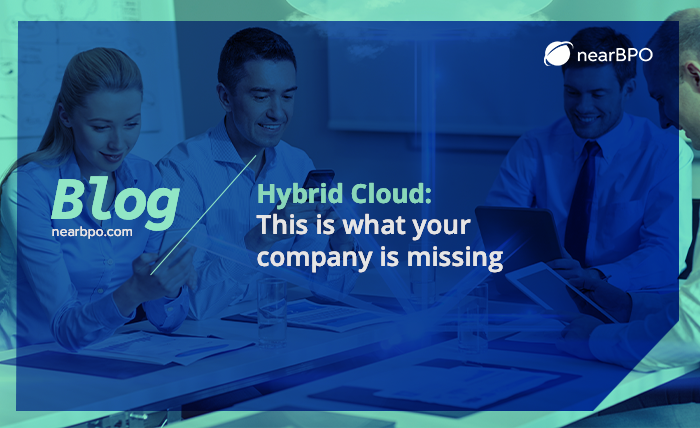It is known to almost everyone in any industry that digital transformation is taking over. From the financial to the healthcare industry, we now can pay services, goods and even make a doctor’s appointment through an app in our smartphones. But, what is behind this digital transformation?
Well, first of all, companies need a secure and large enough server to store all their data. This is why decades ago companies needed to have all their data in private servers with minimal access. Now, and thanks to cloud computing and digital transformation, it is possible to have all the benefits of the public cloud without giving up the security that a private, on-site cloud offers.
But, what does this mean? This means that companies can keep all their important and delicate data protected in a private, on-premise cloud while also taking advantage of the public cloud, which can distribute and share data efficiently and from anywhere in the world. In fact, according to Gartner, 20% of large organizations are already using a bimodal approach by implementing Hybrid Integration, that has enabled seamless connectivity across the enterprises. Next, we are going to introduce a few hybrid cloud benefits, and why this could be the best strategy for your company.
Hybrid Cloud Benefits
1. Security
The sensitive customer data and important information can be stored on a dedicated server while running all your front-end applications in the public cloud. With this distribution, any company will have a seamless and secure environment.
2. Centralized control
With Hybrid Cloud, enterprises will have total control over all their data, and all from one place.
3. Agility
Companies will be able to adapt and change directions quickly, a fundamental goal in any digital transformation. Also, public clouds offer on-demand scalability, which means that enterprises will be prepared for any changes in its platform.
4. Incremental implementation
With a step-by-step approach, enterprises will have the time to learn how to centralized significant operations and processes.
5. Cost-effectiveness
One of the primary benefits of the public cloud is its flexibility. Your business will only pay for what it is using. The public cloud also allows you to grow when it is needed.
Hybrid Cloud Strategy
In the last couple of years, a hybrid cloud strategy has become even more effective. The reason is that new technologies, like Kubernetes, have come to help the process of moving, scaling, and managing apps between platforms, private and public. Nowadays, enterprises have the opportunity to have all the benefits that public clouds offer while keeping all the control in their private cloud.
In Near BPO, we can help achieve a full, reliable, and cost-efficient digital transformation with the latest technologies. All with the endorsement of one of the most reliable tech companies of our time: Google.
“The “right” cloud solution for most businesses, however, is not either public or private, but both.”


